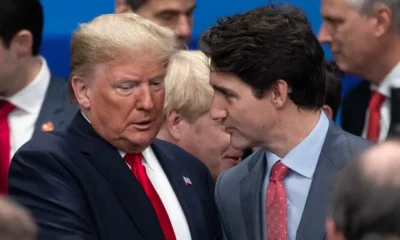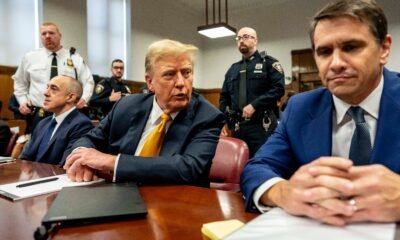News
AMERICA UNDER THREAT OF NUCLEAR WEAPON ATTACK -Pentagon

The Pentagon has raised an alarm of a compelling evidence of possible nuclear weapon strike against the United States (U.S.).
“There is compelling evidence that at least one of our potential competitors in this space believes they can get away with striking us with a low-yield weapon.
“We cannot allow that perception to persist,” Gen. Paul Selva, the Vice Chairman of the Joint Chiefs of Staff said.
Selva said the recent Nuclear Posture Review (NPR) ensured the U.S. could match any nuclear threat, including that of a low-yield nuclear weapon.
“The review makes it clear that the United States will respond in kind to any nuclear threat,” Selva said at the ninth annual Defense Programs conference hosted by McAleese and Associates and Credit Suisse.
The vice chairman underscored that the goal of the NPR was to maintain a safe, reliable, dependable and secure nuclear arsenal.
“We reviewed the world as it is, not the world as we wished it could be,” Selva said.
The NPR projected what capabilities might be useful to supplement the existing delivery systems in the nuclear triad to “raise the bar for all adversaries who might contemplate use of nuclear weapons against the U.S. or our allies,” he explained.
The new capabilities are the sea-launched cruise missile and a low-yield nuclear weapon that could be delivered from a submarine platform, Selva said.
“Don’t mistake the discussion of new capabilities for growth in the nuclear arsenal.
“And please don’t fall in the trap of having the conversation that low-yield lowers the threshold for the use of nuclear weapons,” he said.
Selva pointed out the Nuclear Non-Proliferation Treaty came into force 48 years ago but fewer than 10 countries possessed nuclear weapons or the capabilities to field them.
“We’ve actually created a safer world. That’s not to say that we’re free of the threat from nuclear weapons,” he said.
 The NPR, which was released on Feb. 2, 2018, is nested in the other new national security strategies: the National Security Strategy, National Defence Strategy and a National Military Strategy, Selva explained.
The NPR, which was released on Feb. 2, 2018, is nested in the other new national security strategies: the National Security Strategy, National Defence Strategy and a National Military Strategy, Selva explained.
“All of those set a vector for where we want to move the department, and they are all nested in how we built the fiscal year 2019 budget request,” he said.
The nuclear strategy and acquiring the best and most advanced technologies are vital elements as the U.S. seeks to apply its power and influence around the world, Selva told the conference audience.
The U.S. must continue to build strong alliances, and another important aspect in national security is to maintain the capability and capacity to deploy forces anywhere in the world and project American power where necessary to defend U.S. interests, he said.
“If there is no other reason to bring new technologies and capabilities into our force today, it’s to make sure that no asymmetry from an outside force can prevent us from projecting American force, power and influence at the point in place of our choosing,” Selva said.
The general commended the men and women who serve, saying they make up less than one per cent of the population and are the “secret sauce” to the successes of the Defense Department.
“They’re a unique group of young men and women. What we owe them is good leadership, sound decision tools, the technology that matters on the future battle space, the tools and the training to do the work that we ask them to do,” he said.



























